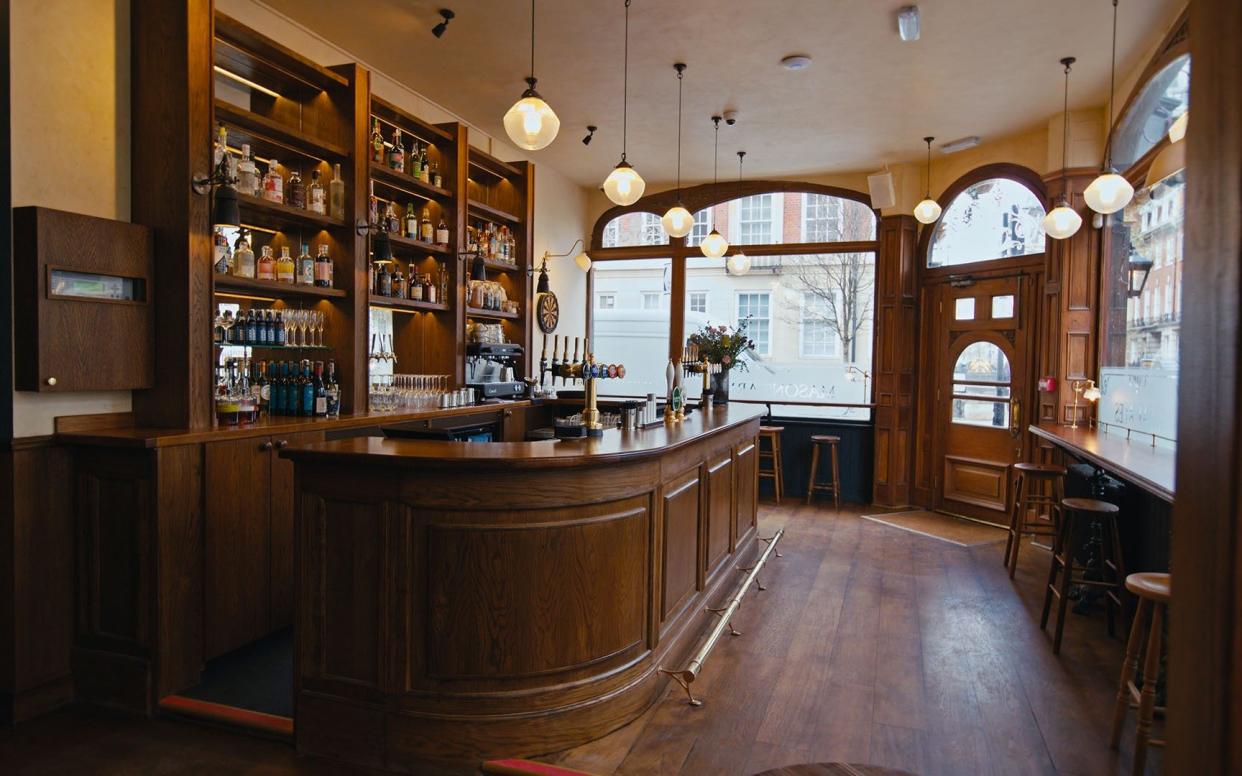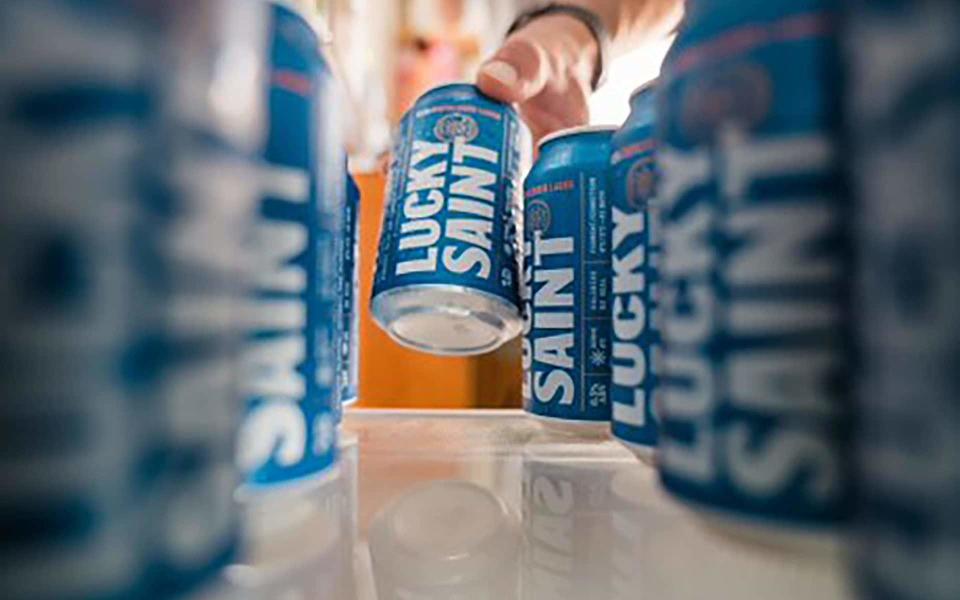Alcohol-free beer is evolving, and it's all due to this small pub

Escaping a cold, wet night a couple of weeks ago, I crammed into a new pub in central London. Inside I found a cosy refuge: wood panelling, a pianist tinkling in the corner, and groups of men clutching pints talking too loudly about football.
A pub, in other words, just like any other, except that this is The Lucky Saint, the first pub from the alcohol-free beer brand of (almost) the same name. To get the obvious question out of the way, it serves alcohol, too. There is Camden Hells and Guinness alongside Lucky Saint on draft. But the owners hope that by presenting their offer differently, they can help blur the lines between alcoholic and non-alcoholic drinks.
‘One in three pub visits is now alcohol-free,’ Lucky Saint’s founder Luke Boase tells me.‘So we wanted to have an offering that reflects that. We’ve put as much emphasis on alcohol-free drinks as on full-strength drinks.’
While alcohol-free drinks have been increasing in popularity in recent years, they have yet to fully overcome the social stigma attached to them.
Although it has been designed to be slightly lighter and more airy than some, The Lucky Saint is emphatically still a pub. But it is built around the idea that while customers still crave traditional pub attractions, there is a gap in the market for one with less of a booze focus.

‘We wanted to keep it traditional, with everything we love and that is familiar about the pub,’ Boase says, adding that while they’ll do a few ploughman’s lunches, this is very much not a gastropub. ‘When you walk into a pub you should instantly feel at home. We want this to be a busy pub where people enjoy themselves and make social connections, regardless of what strength beer they’re drinking.’
When you put it like that, the prospect of a low-booze pub seems quite reasonable. It is the latest innovation from a company that is quickly building a name as the leading alcohol-free British beer, and which recently received £10 million in investment to help fund its expansion.
The beer is brewed in Germany, so a physical premises gives them somewhere to introduce people to their brand, as well as a test centre for new ideas. Unlike most low-alcohol beers, which come in cans or bottles and have to be picked furtively from a fridge of shame, Lucky Saint is increasingly available on draft in other pubs, too. ‘A pint of Lucky Saint’ sounds better than ‘a bottle of Heineken 0.0’. It has a good flavour, confident dark-blue branding and adverts featuring mischievous-looking nuns.
Alcohol is still often presented as an all-or-nothing decision. You’re on or off the wagon. It’s binary. The language around alcohol-free drinks often reinforces that perception: beers are 5% or 0%. The reality of drinking, for many people, is increasingly more subtle. You might want one pint after work, but not four: a martini and then something soft. ‘I don’t believe you should have to go to another pub if you’re not drinking,’ says Boase. ‘People go to the pub because they love the pub: we need to honour the traditions of everything that makes that brilliant.’
Evolution, not revolution, in other words: and firmly in keeping with that great pub lover George Orwell. ‘If you are asked why you favour a particular public-house, it would seem natural to put the beer first,’ he wrote, describing his ideal pub.‘But the thing that most appeals to me about the Moon Under Water is what people call its “atmosphere”.’
More from Ed Cumming: Canned fish is all the rage – but I'm not going to open a tin of sardines for a dinner party

